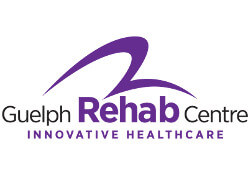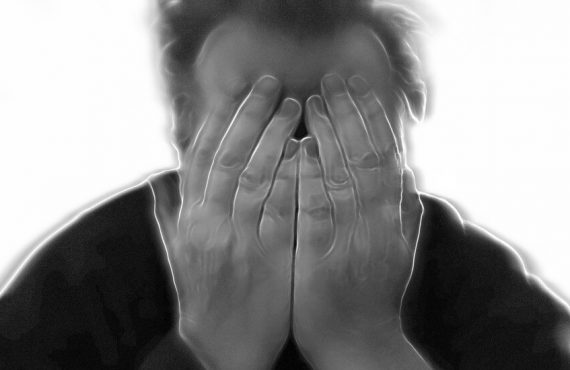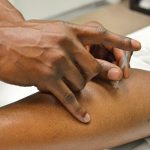Typically about 90% of what we would classify as a headache begin as tension headaches. There continues to be much debate over the causes and treatment of chronic tension headaches.
At Guelph Rehab Centre, we feel most tension headaches are perpetuated by mechanical dysfunction (i.e. posture), soft tissue restriction and nerve entrapments. Our experienced physiotherapy and massage therapy team feel most tension headaches can be treated and are attributed to specific physical restrictions, such as:
- Muscles, ligaments, tendons
- connective tissues
- nerve entrapment
- vascular changes
- biochemical substances that affect pain centers
SYMPTOMS OF TENSION HEADACHES
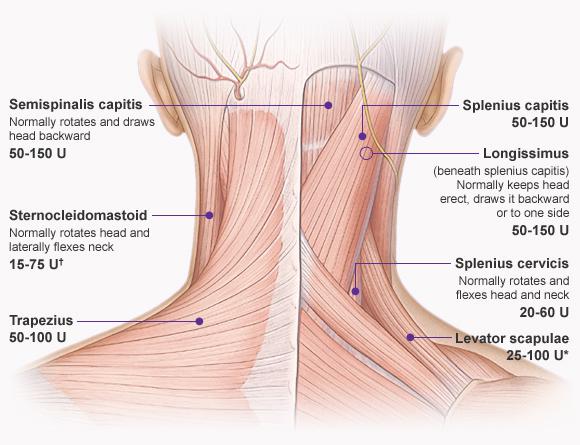 Tension headaches may last from a few minutes to days, in some cases they can be constant for long periods of time. Headaches can cycle from occasional, to recurring bouts of headaches and can progress to chronic, ongoing for years.
Tension headaches may last from a few minutes to days, in some cases they can be constant for long periods of time. Headaches can cycle from occasional, to recurring bouts of headaches and can progress to chronic, ongoing for years.
Symptoms of tension headaches can be described as usually 2 or more of the following:
- dull ache
- band of tightness around the sides of their head
- vice compressing their skull
- stabbing shooting pain
- Difficulty concentrating
- Difficulty sleeping (insomnia)
- Fatigue and irritability
- Loss of appetite
- Neck, jaw/TMJ, or shoulder discomfort
- Tenderness of the scalp
Also it is common that tension headaches start in the neck, settle in the base of the skull and can progress from covering the top of the head to the front of the head, eyes or temporal area.
CONTRIBUTING FACTORS
Nerve Entrapment is usually a factor in tension headaches. Different peripheral nerves that pass under or through musculoskeletal structures (muscles, ligaments, tendons, connective tissue) which can put pressure on a nerve causing a nerve compression resulting in a tension headache. Some of the muscles that are the main contributors of nerve entrapments and tension headaches are:
Sub Occipitals
- Superior/Inferior Obliques
- Rectus Capitus Major/Minor
Splenius Group and cervical musculature
- Splenius Capitus
- Splenius Cervicis
- Levator Scapula
- Upper Trapezius
- Scalenes
Affected Nerves
- The Suboccipital Nerve Entrapment can occur at the superior oblique.
- The greater occipital nerve entrapment can occur under the Splenius capitis and semispinalis muscles, entrapment of this nerve can be one of the causes of cervicogenic headaches
- Trigger points in the superior oblique muscle itself will also refer pain to various regions of the head.
TREATMENT OF TENSION HEADACHES
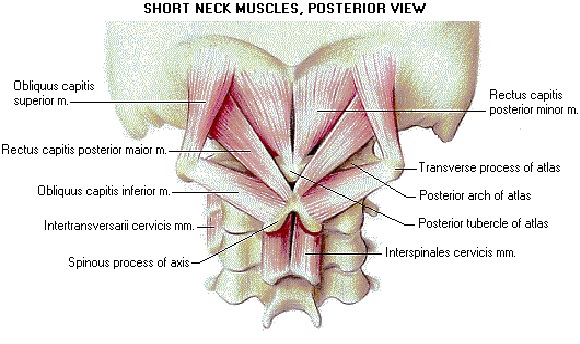 To resolve Tension Headaches, Guelph Rehab Centre has a very unique and innovative program to treat and resolve tension headaches. Incorporating physiotherapy, massage therapy, myofascial and Active Release Techniques along with advanced healthcare equipment, postural retraining and education, Guelph Rehab Centre treats the underlying injury to decrease and even resolve tension headaches. Our headache specialists have over 20 years experience effectively and successfully providing therapy for the treatment of headache pain.
To resolve Tension Headaches, Guelph Rehab Centre has a very unique and innovative program to treat and resolve tension headaches. Incorporating physiotherapy, massage therapy, myofascial and Active Release Techniques along with advanced healthcare equipment, postural retraining and education, Guelph Rehab Centre treats the underlying injury to decrease and even resolve tension headaches. Our headache specialists have over 20 years experience effectively and successfully providing therapy for the treatment of headache pain.

